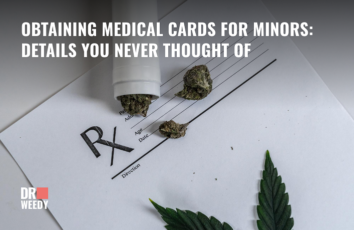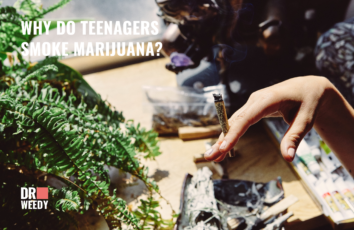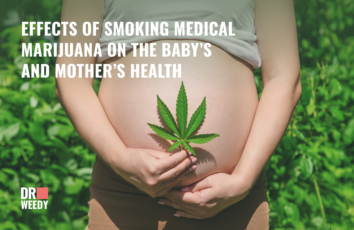What Are the Risks of Smoking Weed Around Children?
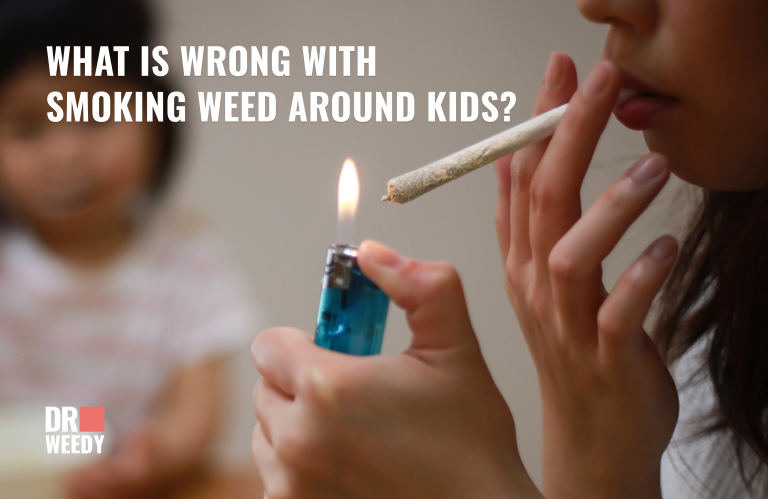
In states that have legalized medical cannabis use, such as California under the Medical Marijuana Act 1996 (Proposition 215) medical cannabis use is permitted for patients with qualifying conditions. This legal framework allows patients aged 18 and over to procure medical cannabis for their own use. While there is typically no specific age restriction for medical cannabis use, minors under 18 usually require parental consent in compliance with state regulations.
However, it is crucial to understand the potential effects of second-hand smoke on children and the necessary precautions that adults should take to minimize health risks for minors. It is important to note that deliberately smoking weed in the presence of a child, despite being aware of the potential harm caused by the vapors, can have legal implications and be considered as deliberate harm to the child’s health.
In this article, we will explore the risks associated with smoking weed around children and provide guidance on responsible behavior to prioritize the well-being of minors.
Basic Precautions for Smoking Parents
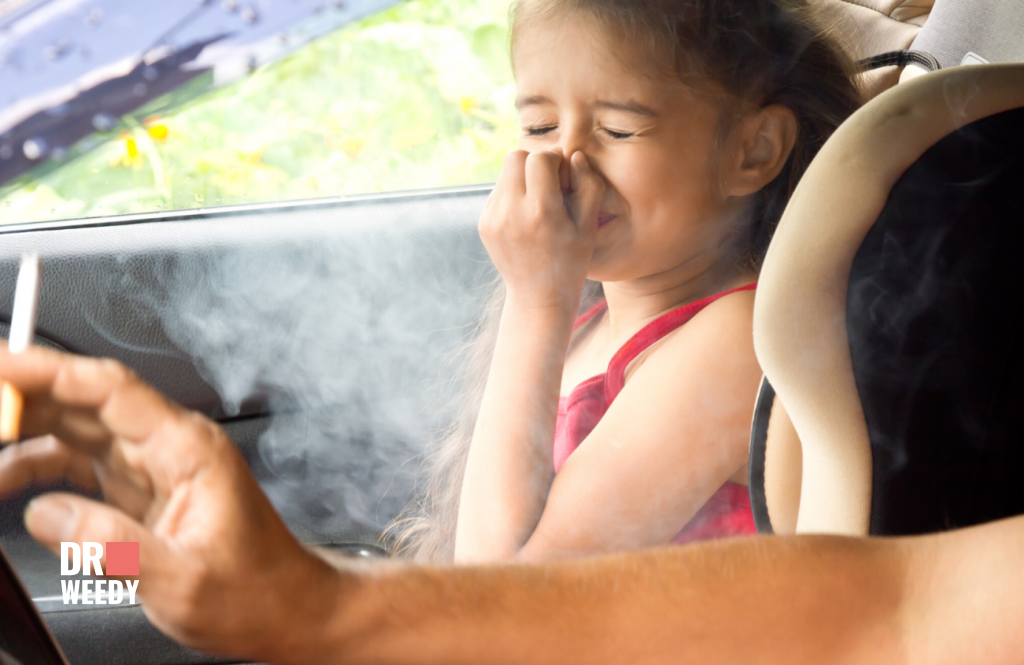
Medical marijuana use raises valid concerns about potential impacts on children’s health. Despite its growing acceptance among adults, most parents oppose exposing their children to secondhand marijuana smoke. To minimize any potential risks, parents need accurate information and practical strategies.
Here are some key precautions for parents who use medical marijuana:
- Consult with your doctor about the recommended dosage and timing.
- Stick to the prescribed dosage.
- Maintain a minimum distance of 30 feet (10 meters) from children when smoking.
- Be aware that smoke can linger indoors for up to 5 hours. Avoid smoking in areas where children will be present during this time.
- Ensure windows and doors are closed if smoking on a balcony or terrace.
- After smoking, change clothes, rinse your mouth, and wash hands to reduce potential exposure.
- Store marijuana products in a lockable container, out of children’s reach.
Despite ongoing research, the long-term effects of marijuana smoke exposure on infants remain unclear, as per a study from the National Institutes of Health (NIH). Even though there is a lack of marijuana-specific data, the harmful impact of secondhand smoke on children is well-documented. This includes immediate effects like respiratory problems and potential long-term issues such as heart disease and cancer. Therefore, it’s crucial to prevent children’s exposure to marijuana smoke. Adults should avoid smoking in children’s presence, ensure proper ventilation indoors, and store marijuana securely to mitigate these risks.
Considerations for Special Risk Groups

Special Risk Groups:
Patients, particularly those with pre-existing mental health conditions, might need to completely avoid cannabis use. Scientific studies suggest that individuals with a genetic susceptibility to psychosis could encounter exacerbated symptoms from frequent marijuana usage. Consequently, healthcare professionals may provide varying recommendations based on individual health profiles. They might advise complete abstinence, suggest controlled usage under medical supervision, or recommend regular check-ups to monitor potential side effects. The decision is always personalized, rooted in the patient’s specific health condition and response to cannabis.
Pregnancy and Cannabis Use:
Studies show that cannabis use during pregnancy can lead to fetal anemia, low birth weight, and more frequent neonatal intensive care unit admissions. While some studies suggest a possible link between prenatal cannabis exposure and certain childhood cancers, further research is needed.
Statistics and Recommendations
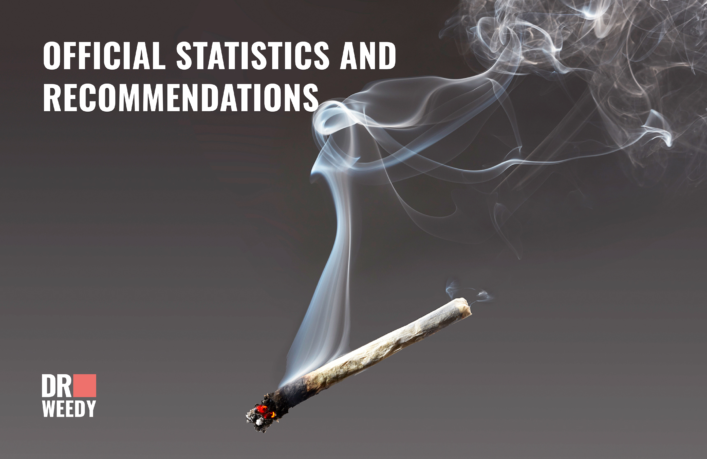
The National Institutes of Health has conducted research on potential risks associated with cannabis use and offered recommendations to mitigate those risks. They’ve published detailed reports on possible health consequences of secondhand marijuana smoke, including effects on children. We recommend that parents and caregivers peruse these reports for additional information.
“Pediatricians and other child advocates are concerned that legalization may increase exposures for children and teens, either intentional or accidental, as in Jasmine’s case. In 2015, the American Academy of Pediatrics updated its policy statement, which opposes the legalization of marijuana.
Between 2006 and 2013, the rate of children who were unintentionally exposed to marijuana and required a hospital visit increased 148 percent nationwide and 610 percent in states with legalized medical use, according to a recent report from researchers at UC Davis.
The ingested products often looked like familiar treats, such as candies, brownies, and cookies. Intoxicated children commonly had fast heart rates, lethargy, and difficulty walking. Nearly 18 percent required admission to the PICU.”, – tells “California Health Report”/a>
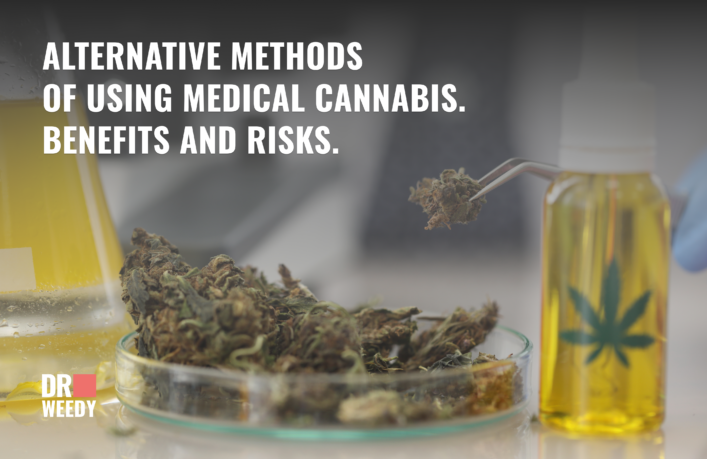
Alternative Methods of Using Medical Cannabis: Weighing the Benefits and Risks
Ingested cannabis-based products, such as pills and liquids, can eliminate the risk of inhaling secondhand smoke. However, these may seem less effective to users, leading to overconsumption. The delayed absorption can make dosage adjustment challenging. Moreover, children can accidentally ingest cannabis edibles, requiring immediate medical attention.
While legalization doesn’t guarantee absolute safety, it’s crucial to be informed. Decisions about medical cannabis use should not expose others, especially children, to potential risks.
Legal Consequences of Exposing Minors to Secondhand Marijuana Smoke
Understanding the potential health risks of secondhand marijuana smoke to children is vital. Legal consequences can occur if adults disregard these risks. For instance, in Illinois, according to local news reports, smoking cannabis in a car with anyone under 18 present can lead to a Class A misdemeanor. In more serious cases, like one reported in Alabama, authorities removed a toddler from a Michigan family found with marijuana, citing the child endangerment law. Hence, willful exposure of a child to marijuana smoke could lead to significant legal consequences, including loss of custody or criminal charges, under various U.S. state laws.
Educating Children and Teens
Education plays a crucial role in keeping children and teenagers safe. Open conversations about the effects and potential risks of marijuana are important. This can help to dispel myths and prevent accidental ingestion or intentional experimentation. Parents should also take care to model responsible behavior when using medical cannabis.
Further Research Needed
There is a considerable gap in our understanding of the long-term effects of secondhand marijuana smoke on children. More comprehensive studies are needed to fully explore this area. Until then, it is advisable to err on the side of caution to protect the health and wellbeing of children.
Conclusion
While the use of medical cannabis is increasingly common, it is essential for adults to take necessary precautions to prevent children from being exposed to secondhand marijuana smoke. The potential health risks to children, coupled with the legal implications, necessitate responsible usage and secure storage. As research continues, parents and adults must stay informed and prioritize the safety of children in all circumstances.
























